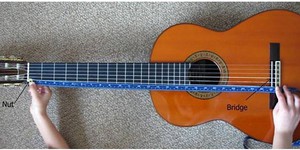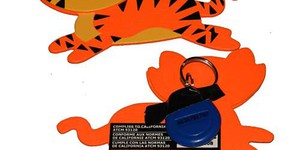Others Like “Ding, Dong, Ding, Dong: Morning Bells Are Ringing” (top 20 results)
|
Music has many mathematical elements in it: rhythm, pitch, scale, frequency, interval, and ratio. There are many ways to turn these elements into a science fair project. You can investigate how the scale is based upon a special type of number sequence called a Harmonic Series. Another scale used by Bach, called the "Well-Tempered-Scale" or the "Equal-Tempered-Scale", is based upon a series. How are these mathematical series and ratios related to notes, chords, intervals, and octaves? You can…
Read more
Use sound recording and analysis software to record voices of your family members. Can you figure out ways to identify each family member by just looking at the analyzed sound patterns from their voice (e.g., spectral frequency analysis)? Develop a hypothesis about what types of sound analysis will identify an individual. Have a helper record additional test files of your family members, without telling you which file belongs to whom. Unplug your computer speakers and see if you can…
Read more
Did you know that your guitar has a secret? Yes, that's right—hidden along each string are special places where you can play harmonics and make your guitar sound like a bell! In this music science fair project, you'll find out where the main harmonics are located on a guitar, and then see how those locations are related to the length of the strings. So get out your guitar—it's time to ring in a science fair project!
Read more
Walk into any music store and you'll find a dizzying array of string choices for your classical guitar, including rectified nylon, clear nylon, carbon fluoride, bronze wound, phosphor bronze wound, silver-plated copper wire, Polytetra-flouro-ethylene (PTFE), each in a range of tensions from low to high. There is no single best brand or best material. All have their advantages and disadvantages. A set of strings that sounds "sparkling" on one guitar might sound dull on another, primarily because…
Read more
Do you enjoy singing contests like American Idol? Well, male songbirds have their own version of a singing competition that has been going on for thousands of years, and classical musical composers have been taking notes! In this music science fair project, you'll investigate the different instruments composers have used to imitate or create impressions of bird songs and bird calls.
Read more
You probably know that where you live on Earth affects your weather. If you live in a far northern or far southern latitude, you experience colder temperatures than people who live near the equator at latitudes close to zero. Your latitude on Earth affects many aspects of your culture, like how you dress, what kind of house you live in, what foods you eat, and even how your day is structured: what time you go to school, to dinner, and to sleep. Some cities at latitudes closer to the equator,…
Read more
If you like music and musical instruments, here is a project that might resonate with you! This is a fun experiment to investigate materials that could be used to build acoustic musical instruments. You can use a music box mechanism and a sound level meter to see which materials make the best soundboards.
Read more
Passports, identification cards, bus passes, and even some credit cards contain RFID tags. An RFID (radio-frequency identification) tag allows a card to be read by a computer from a short distance away. While this is very useful in everyday life, would you believe you can make music with it? RFID + sampled music sounds + a little crafting = a fun musical instrument that is limited only by your imagination. In this science project, you will make handbells out of paper cups that play real sounds,…
Read more
Learn how to edit sound files so that you can manipulate the recorded sound mathematically. You can either find specialized audio editing software or do background research to teach yourself about sound file structure so that you can write your own simple program to manipulate sound files. Try arithmetic operations on the sound values (e.g., adding or subtracting a constant, multiplying or dividing by a constant). How do these operations alter the sound? Try other mathematical operations:…
Read more
Eardrums are membranes inside your ears that vibrate when sound waves hit them. These vibrations are converted into electrical signals and sent to your brain, which allows you to hear sound. The frequency response of your eardrum, or the range of frequencies that will cause it to vibrate, determines your hearing range. Typical human hearing ranges from about 20 Hz up to 20,000 Hz, although the ability to hear high frequencies typically degrades as you get older. Some other animals can…
Read more
|
Explore Our Science Videos
Aluminum Foil Boat Design - STEM Lesson Plan
Write and Read Braille – STEM activity
Build a Wind-Powered Car







